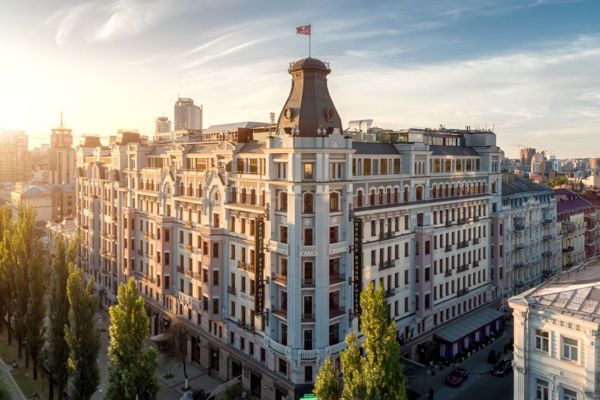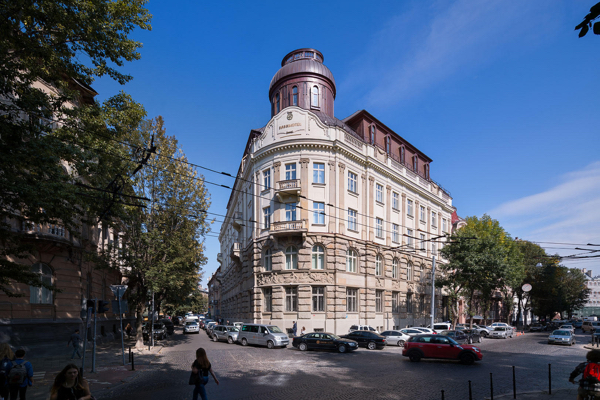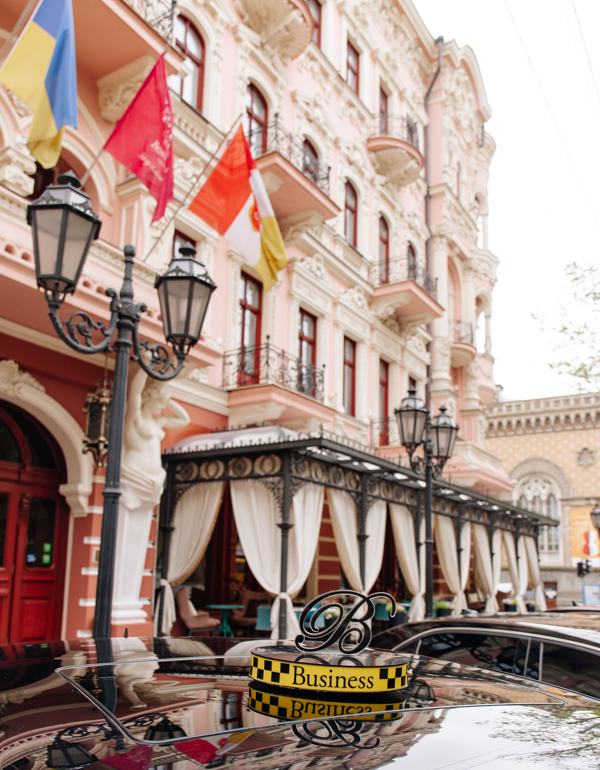At the end of 2021, the major concern of Ukrainian hoteliers was the ongoing impact of COVID-19. Then, as the hospitality world began to recover from the pandemic in 2022, again Ukrainian hoteliers faced unprecedented challenges caused by the war with Russia.
Contributed by Tetiana Antoniuk, editor, Commercial Property, Ukraine
Because of the full-scale war, which has now lasted for more than four months, the total hotel supply has been reduced as part of the Ukrainian territory in the east and south has been occupied by Russia and some of the facilities have been destroyed.

In this full-scale war, according to the Kyiv School of Economics (KSE), Ukraine has lost US$103.9 billion from damage and destruction of residential and non-residential buildings and infrastructure (data as of June 8, 2022). The KSE’s project ‘Russia will Pay’ provides more details on some real estate segments.
So far, there is no accurate information on the hotel sector. The data is about to be collected by the Ukrainian Hotel & Resort Association (UHRA) in cooperation with KSE. According to preliminary information by UHRA, at least 10 hotels have been damaged or destroyed in Mykolaiv, Chernihiv, Kyiv, Kherson, and Odesa regions and the city of Mariupol. It has been confirmed that the Reikartz hotel in Mariupol and Ribas Hotels’ glamping Mandra Shato Trubetskoho near Nova Kakhovka have been ruined.
In addition, the available supply has been further reduced because some hotels have suspended their business because of safety issues, lack of demand, or inability to operate for technical reasons.
Several hotels reopened in May and June. Despite that trend, Arthur Lupashko, founder of the Ribas Hotels chain, estimates that only 20% of such hotels continue operations in Ukraine. But that is not the case for the western regions that are a safer part of the country. Iryna Sidletska, President at UHRA and CEO of Vertex Hotel Group, says, “All the hotels in the west of Ukraine continue to work, and there are no reasons for them to close.” As a representative from Ukraine’s Premier Hotels & Resorts explains, the situation in the market is directly proportional to the level of relative security and remoteness of the region from the front line in the east and south of the country.
Thus, the western hotels showed quite impressive dynamics in March-April, enjoying temporary but record-high occupancy rates. It was caused by the migration of people mainly from eastern, southern, and central areas, who were looking for safer places. Some were transit guests who traveled to other countries, and others were internally displaced people who chose the west of Ukraine as a temporary place to live. As a result, such hotels reached 100% occupancy.
For example, Bankhotel in Lviv and Yaremche Club Hotel in the Ivano-Frankivsk region were 100% occupied from the end of February through April. Premier confirms that there were, and are still, observed periods with no available rooms in its hotel in Lviv. To compare, according to HotelMatrix, the average occupancy in Ukraine reached 44% in March, 38% in April, and 33% in May. Also, hotels accommodated many journalists from around the world, representatives of international diplomatic missions, embassies, volunteer organizations, and corporate clients who moved their teams to safer regions in the first months of the full-scale war.
But while welcoming displaced people, hoteliers had to manage the fact that their personnel also moved to safer places or emigrated abroad. Besides, many employees decided to defend the country and joined the defense forces. So, when asked to talk about the major difficulties during this period, first and foremost, hoteliers mention issues concerning their teams, particularly, the difficulties in keeping people together and loading them with work. “The team is our major value,” said Iryna Sidletska. “The most difficult thing is that now most of the team members are in different parts of the world. The current workload of hotels does not allow to involve all the staff. It is very painful.”
Even further challenging is the fact that hoteliers must take even more care of the safety of their teams and guests. For example, in some properties, there have been equipped shelters for their staff and clients. Premier Palace Hotel in Kyiv also provided shelter during air raids to residents of the surrounding buildings.
Hotels inform their guests when the air-raid siren goes on and off. During the air-raid alert, some services may be unavailable. Also, some properties have increased the security staff and introduced additional verification of the clients’ personal data. That is a new reality, and adjusting to it, hoteliers also need to adapt working routines to the curfew. Mainly, it means the reduced working time of some facilities, more workloads during the day shifts, and changing schedules for the employees.

But on top of that, the Ukrainian hotel market became an extensive part of the volunteer movement in the country. Hotels accommodated people who had to leave their homes or, unfortunately, lost their homes. They have prepared food, cooperated with volunteer organizations, charity funds and hospitals. They have fundraised, donated, or bought necessary humanitarian or army equipment.
For example, Bankhotel provided volunteer and humanitarian assistance to temporarily displaced people, preparing and delivering meals to humanitarian centers in Lviv.
Ribas Hotels employees and their friends organized an army and territorial defense assistance headquarters and fundraised money for ammunition, food and other necessary products.
Yaremche Club Hotel accommodated temporarily displaced people and provided food and basic items for everyday life.
Premier Hotel Palazzo in Poltava provided free residence and food to the refugees from Kharkiv, while Premier Hotel Dnister in Lviv allocated part of its room supply for free accommodation of refugees and turned one of the conference halls into a free hostel.
In addition, some hotel companies cooperated with their partners abroad, providing free hotel accommodation for refugees or hired Ukrainians.

Now, the situation in the hotel market is changing again. Internally displaced people who accounted for about 70% of guests in the first months of the war have either returned to their homes or went abroad. Thus, even hotel properties in the west of the country face a decline in occupancy. Premier said demand dropped significantly in the last two months. In June, occupancy in Lviv varied from 30% to 40%; it reached 40% in Ivano-Frankivsk and 50% in the Transcarpathian region. In Kyiv and Odesa, the occupancy was as low as 10% to 25%. Also, the term of stay was shortened to 2-4 days compared to 1-1.5 months earlier. Taras Kuzyk, general manager of Bankhotel, forecasts the low level of occupancy till the end of this year. Only the Transcarpathian region might enjoy higher rates compared to others. As Iryna Sidletska explains, that is due to its proximity to the European border and a period of vacations.
Most of the hotel development projects and plans have been suspended. But it is impossible not to mention that two new schemes, Ribas Rooms in Bila Tserkva in the Kyiv region and Emily Resort near Lviv, were opened during this wartime. Both projects were in the final stages of development. Also, Best Western Plus Market Square in Lviv is expected to open soon.
In addition, during wartime, Ribas Hotels signed three contracts to design and construct new hotels. The company’s portfolio has about 20 projects in the pipeline now, half of them located in the west and have not been paused. Vertex Hotel Group, though war has affected the market demand, plans to finish the rebranding of the Londonskaya hotel in Odesa, which will join the Best Western Collection brand and re-launch soon.
Despite that the situation is unpredictable and every single moment there is a risk of new attacks, Ukrainian business and hotel market, in particular, tries to adapt, survive, and even develop.
